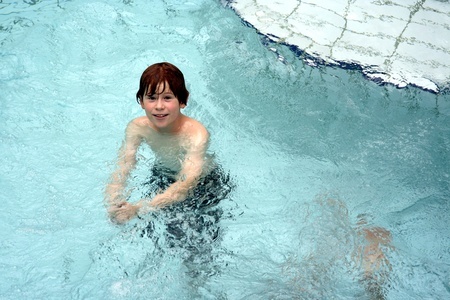What Are Pool Owners'Safety Responsibilities?
May 13, 2015 | Category: Child Injuries | ShareNBC-2 reported April 27, 2015 that Lee Memorial Hospital just reviewed their drowning data for the last six months, and 19 children visited the hospital for a near-drowning or submerged injury.
 Owning a pool may sound like an inviting idea especially in Florida's warm climate. However, before installing a swimming pool, it is important for anyone, such as homeowners, associations, clubs, and communities to know the responsibilities and risks involved with ownership. Serious personal injury or even wrongful death can be the result if the risks of ownership are not considered.
Owning a pool may sound like an inviting idea especially in Florida's warm climate. However, before installing a swimming pool, it is important for anyone, such as homeowners, associations, clubs, and communities to know the responsibilities and risks involved with ownership. Serious personal injury or even wrongful death can be the result if the risks of ownership are not considered.
Often the public believes pools are safe as long as there is no running, horseplay or swimming while being intoxicated. This is not the case. Drowning can happen quickly and quietly. Injuries can happen from improperly installed pool equipment, from pools which do not have the required fence, gates with latches and locks, and/or pool covers. Poorly maintained pools present opportunities for swimming accidents and deaths. About one million pool and spa drain covers were recalled in 2012 according to the CPSC (Consumer Product Safety Commission) because of possible entrapment hazards to swimmers. All of these issues, and more, are risks involved with pool ownership.
Florida's Residential Swimming Pool Safety Act (Chapter 515) provides:
- Requirements for swimming pool barriers to pass final inspection and receive a certificate of completion:
- Meet at least one of the following requirements - pool must be isolated from access to a home by an enclosure; pool must be equipped with an approved safety pool cover; all doors and windows providing direct access from the home to the pool must be equipped with an exit alarm that makes audible, continuous alarm sounds when any door or window which permits access from the residence to any pool area that is without an intervening enclosure is opened or left ajar, and/or all doors providing direct access from the home to the pool must be equipped with a self-closing, self-latching device with a release mechanism placed no lower than 54 inches above the floor.
- Drowning prevention education program; public information publication.
- Information which is required to be furnished to pool buyers - Licensed pool contractors must give pool buyers a document containing the requirements of the Residential Swimming Pool Safety Act (515.31) and information on drowning prevention and the responsibility of pool ownership.
Florida has more child drownings than other states, and most children between the ages of 1-4 drown in home swimming pools, according to the CDC (Centers for Disease Control). In the time it takes to answer the phone or carry on a conversation with a friend, a child may drown in a pool. Preventing drownings is a full-time job which starts with full-time supervision.
Whether a pool is residential or public, the owner of the pool is responsible for providing a safe environment for those who use the pool, both adults and children, and for those who may come in contact with the pool from the outside. They must be pro-active in preventing accidents. Relying on signs which say, "Swim At Your Own Risk" or "No Lifeguard On Duty", do not relieve the pool owner of responsibility. If owners of pools do not take the adequate measures to prevent unsupervised or uninvited people from gaining access to the pools, they may be assuming the liability if an accident occurs.
"Swimming accidents can result in paralysis, brain injury due to oxygen deprivation, broken bones, or even death. We, at Spivey Law Firm, Personal Injury Attorneys, P.A., work to investigate accidents and help victims recover money through a personal injury lawsuit for the pain and suffering, mental anguish, medical bills, rehabilitation expenses, and lost wages that can result from these accidents," said Naples Swimming Pool Accident Attorney, Randall Spivey.
Naples Swimming Pool Accident Attorney, Randall L. Spivey is a Board Certified Trial Attorney – the highest recognition for competence bestowed by the Florida Bar and a distinction earned by just one (1%) percent of Florida attorneys. He has handled over 2,000 personal injury and wrongful death cases throughout Florida. For a free and confidential consultation to discuss your legal rights, contact the Spivey Law Firm, Personal Injury Attorneys, P.A., in Lee County at 239.337.7483 or toll free at 1.888.477.4839,or by email to Randall@SpiveyLaw.com. Visit SpiveyLaw.com for more information. You can contact Spivey Law Firm, Personal Injury Attorneys, P.A.in Charlotte County at 941.764.7748 and in Collier County 239.793.7748.

